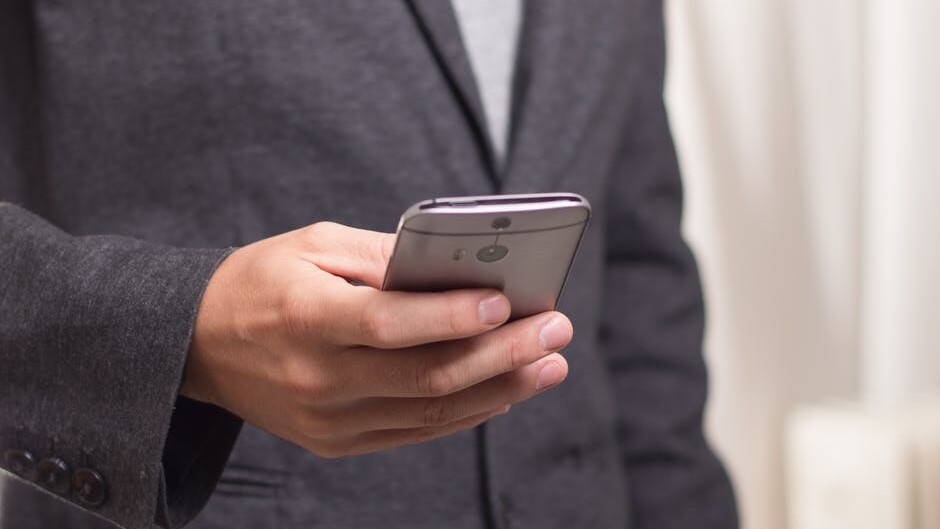
Today’s technology makes it easier than ever for small businesses to manage communications and take care of those important tasks that help them find new customers. After all, with the ability to connect with work using a smartphone or tablet, you don’t even have to be in the office to get things done!
As great as this technology is, though, it isn’t without its drawbacks — particularly, the risk of having your valuable data stolen. From open wi-fi networks and spy apps to the vulnerability of SS7 protocols, hackers have plenty of avenues with which they can gain access to your messages and confidential information.
So how can you ensure that your growing company’s information is kept safe? These days, firewalls aren’t enough. Every small business should seriously consider encrypted messaging.
To gain a better understanding of the importance of encrypted messaging, I spoke with close friend Justin Shimoon, CEO of Hushed. His company’s app provides end-to-end encryption through its own messaging platform to ensure the security of private conversations and overall peace of mind — something he says is essential not only locally, but globally in today’s business world.
The risks of unencrypted messaging
So why is sending unencrypted messages such a big deal? Most businesses already take steps to secure their data when it is “at rest” — in other words, stored on a computer hard drive or in the cloud. Most small businesses use spam filters, firewalls and other similar products to shield information stored within their own network.
The problem arises when that same information needs to be transmitted from one user to another via email, text message or an app. After all, just because your network is secure, doesn’t mean that your recipients are using a secured network. The more confidential information you and your recipients deal with, the more likely you are to be a top target for hackers.

As Shimoon explains, “Today’s hackers don’t just try to break through your firewall. They have the ability to intercept your text and email communications using your network connections or those of your recipients — and if you’re sharing confidential data, there’s a good chance they’ll be able to use malware to read it.”
If hackers gain access to your unencrypted messages, you could find yourself dealing with costly data theft or exposure. This could damage your relationships with your customers and business partners (especially if their information was stolen as well), while the recovery costs and negative publicity would result in serious damage to your fledgling brand.
Quite simply, sending unencrypted business messages isn’t worth the risk.
How message encryption makes a difference
When you encrypt your messages, however, you ensure that your data will be kept safe even if a hacker were to intercept the message. The idea behind standard message encryption is that it encodes your message in a way that will make it look like an unintelligible mess to anyone who sees it. Unlocking the message (and rendering it legible again) requires the use of an encryption “key,” which is shared separately.
While this keeps unsavory individuals from reading the contents of your message, this basic level of encryption isn’t without its drawbacks. As Digital Trends notes, many users face the challenge of safely exchanging their encryption keys with their recipients.
Furthermore, manually creating keys can be very time-consuming. It’s also worth noting that standard encryption doesn’t scramble anything besides the message — allowing hackers to potentially glean information from email subject lines and recipient lists.

The Hushed team wanted to take things a step further with the latest version of their app to address these and other concerns. As Shimoon explains, “The best way to ensure your security is when both the messages and the communication channel are fully secure. That’s why our app generates new encryption keys each time users start a conversation — so even if a hacker were to get one set of keys, they wouldn’t be able to access active conversations.”
With full end-to-end encryption, your messages are more fully secured at each stage of communication. When combined with the use of an encrypted web connection, you can significantly improve communication security.
Maximizing your digital security
For small businesses, the best way to keep confidential data safe is to ensure that data is encrypted both when it is at rest and when it is in transit via messaging. Full disk encryption and end-to-end messaging encryption ensures that only you and your recipients will be able to read sensitive information, even if an unauthorized user were to gain access to your network.
However, users shouldn’t neglect the additional security measures they need to implement on their own devices, either — if access to your device and messaging apps isn’t protected with strong passwords and other privacy features, all that encryption will go to waste.
Ensuring your company’s cyber security needs are meet is an ever-evolving process; one that will require constant vigilance so that you don’t accidentally create opportunities for malicious individuals to steal your information. As you take advantage of encrypted messaging platforms and other digital security services, you can have confidence that your company’s data — and its future — will be kept safe.
Get the TNW newsletter
Get the most important tech news in your inbox each week.




